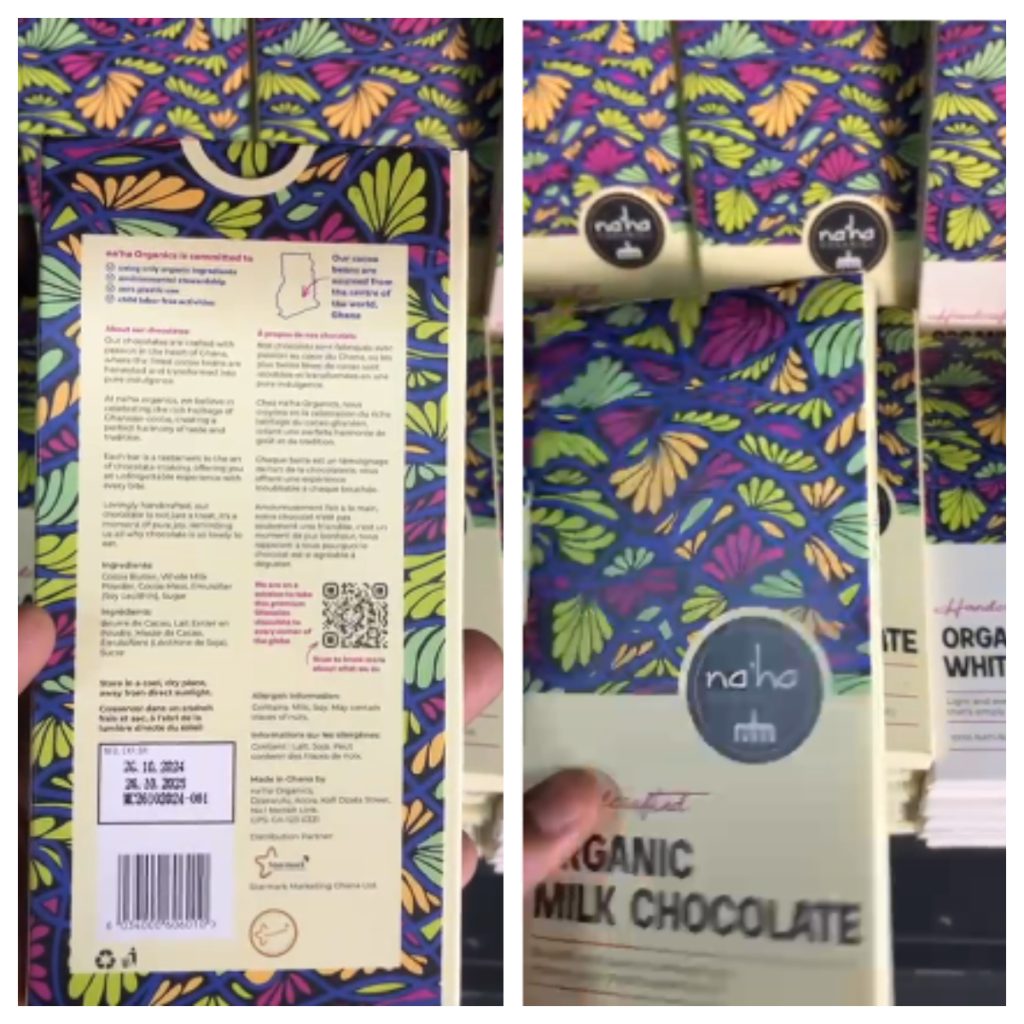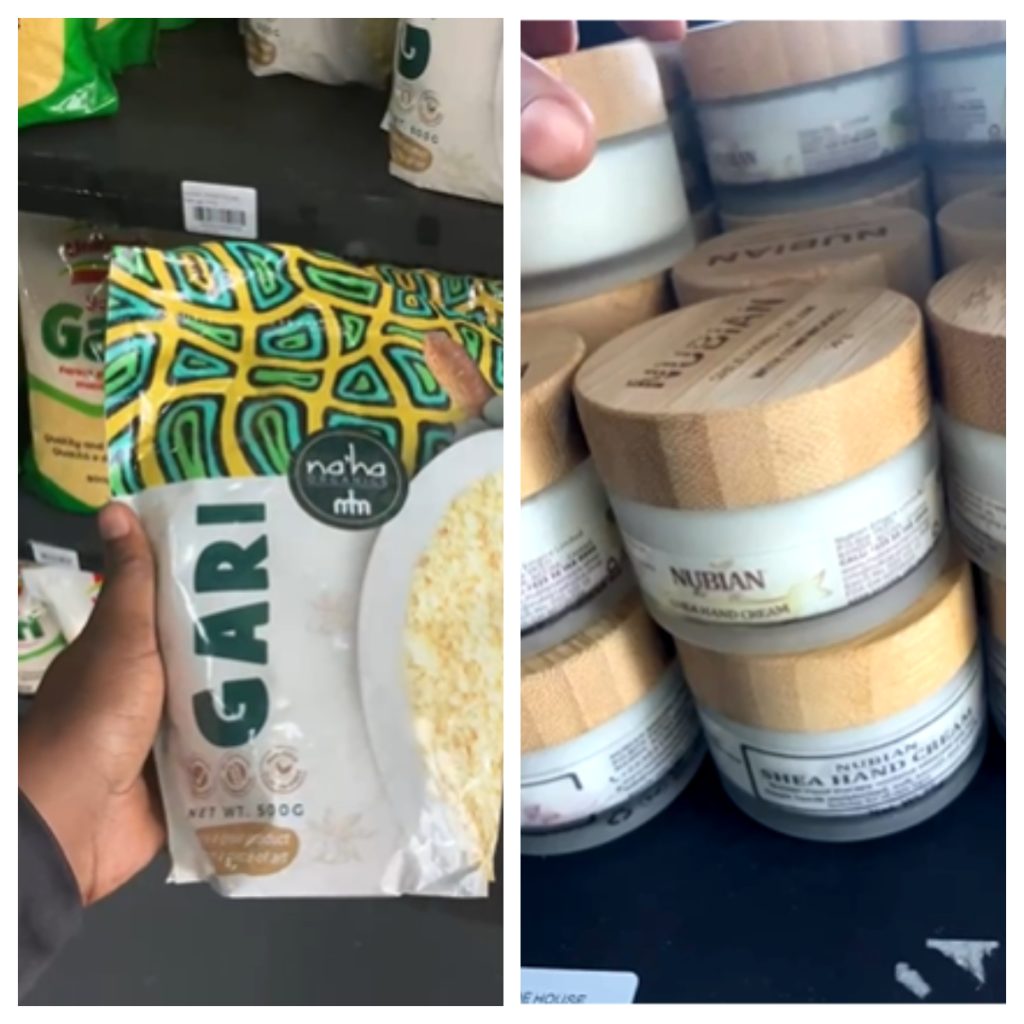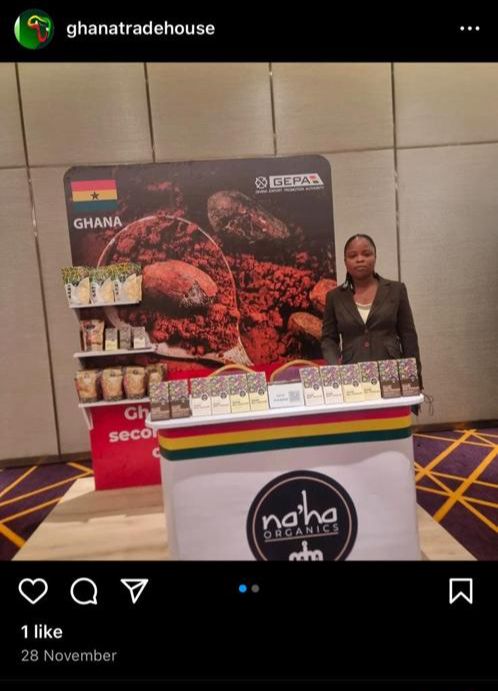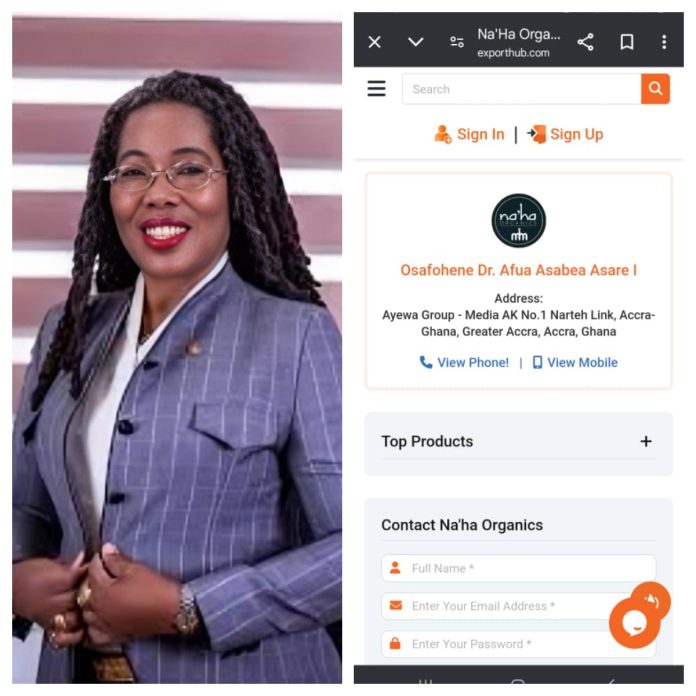Special Report: WILLIAM NANA BEEKO || CHIEF EDITOR
The cover of the Ghana Export Promotion Authority (GEPA), and its CEO, Dr. Afua Asabea Asare, have been blown as she faces allegations of conflict of interest and abuse of office.
Internal Investigative digging has revealed that the CEO is allegedly exploiting the African Continental Free Trade Area (AfCFTA) initiative as a personal “cash cow,” undermining the very purpose of the program designed to empower Ghanaian businesses and startups.
Background: The GEPA-AfCFTA Initiative
In 2023, under the President’s Special Initiatives, GEPA collaborated with AfCFTA, the World Bank, and National Coordination Office (NCO) to establish a groundbreaking program aimed at bolstering Small and Medium Enterprises (SMEs) and Micro-SMEs in Ghana. This initiative sought to:
– Facilitate bilateral trade agreements, starting with Kenya, enabling Ghanaian and Kenyan businesses to showcase their products in each other’s markets.
– Establish trade houses across African countries to promote made-in-Ghana goods.
– Provide SMEs with access to funding, grants, and export markets.
– Break trade barriers in alignment with AfCFTA’s mandate.
The program initially charged participants GHS200 for a Trade House sign-up fee, later increased to GHS2,000, and a USD $200 official business registration fee.
A visionary 10-year plan was also unveiled to reduce shipping costs for Ghanaian businesses trading within Africa, fostering export growth similar to the European Union model.

Allegations of Corruption and Conflict of Interest
Despite the promising start, the initiative has reportedly been hijacked by Dr. Asare, who is accused of manipulating the system to serve her personal interests.
According to multiple sources there have been:
Monopolization of Trade Houses
Dr. Asare is alleged to have established her own businesses, including Na’ha Organics, which produces and exports products such as Shea Butter, Fonio Grain Rice, Organic Gari, Organic Dark Chocolate amongst others.






This event banner shown below here is from the Ghana Trade House based in Kenya.

Ghana led by GEPA was meant to have sponsored SMEs in the Coffee, Cocoa and Chocolate industry to be at this event in Kenya instead, Dr. Asabea solely represented her brand and manipulated her way through to run a monopoly at the event.
See a graphic photo evidence of the product brands Dr. Asare has been producing and photo of her exhibition of the products at the International Trade Exhibitions held in Kenya.

But When contacted for her response to the issues she said “Mischief. Someone just put me there. Thank you. You can also come to the office to verify the veracity of the info as well as talk to our clients.”
However after these reactions she shamelessly went to the ExportHub website where her company and products are listed and removed all her company information from the ExportHub leaving no traces but we crave the indulgence of readers and Ghanaians to check the BEFORE the filing of this report when the products were still on the website as against after this platform engaged her to expose her.
BEFORE THE MEDIA INVESTIGATIONS AFTER THE MEDIA INVESTIGATIONS

These products have allegedly dominated the GEPA-run trade houses, effectively sidelining other SMEs that signed up for the program.
2. Control Over Funding and Resources
Startups and SMEs claim they are denied access to grants and funding opportunities under the initiative. Instead, Dr. Asare allegedly uses their business profiles to secure funding, which is then diverted to her ventures.
Exhibitions and networking opportunities, touted as key benefits of the program, have reportedly become hollow gestures, with no tangible support for participating businesses.
3. Manipulation of Shipping Channels
Dr. Asare is accused of redirecting all export orders from Kenya and other African countries to her businesses.
Kenyan partners have allegedly been instructed not to engage with Ghanaian SMEs directly but to channel all dealings through the GEPA CEO.
Impact on SMEs and Entrepreneurs
Ghanaian entrepreneurs are bearing the brunt of these alleged corrupt practices. Several affected business owners, speaking under anonymity, expressed frustration:
“We signed up to this initiative with high hopes of expanding our businesses across Africa. Now, we are sidelined while the CEO monopolizes the opportunities meant for us. This is a clear conflict of interest and a betrayal of the trust we placed in GEPA.”
Another entrepreneur lamented:
“We receive no updates or feedback anymore. All inquiries are met with silence, and Kenyan partners have been ordered not to work with us. The entire initiative has been reduced to serving one person’s selfish interests.”
This is what another victim had to share:
“In June 2024, during the Absa Inspire Me conference in Nairobi, I engaged with a prominent Kenyan retail chain with branches across the country. The company expressed strong interest in listing my beauty products and provided supply forms along with a request for the necessary business and product documentation.
Following discussions, the retail chain clarified that they would not handle logistics, meaning I would need to deliver products to their warehouse. I sought advice from a Ghana Export Promotion Authority (GEPA) staff member in charge of the Ghana Trade House in Nairobi. She assured me that her team would find a solution and later requested to take over the communication and deal on my behalf.
Reluctantly, I introduced the Kenyan company to the Ghana Trade House team, copying key GEPA officials. The Trade House team held a successful initial meeting with the retailer, during which the company expressed interest in my entire product line. I sent product samples for a second meeting, which also went well, but communication from the Trade House team ceased afterward.
I sent two follow-up emails to the Trade House team without any response. Concerned, I reached out to a Kenyan ITC (International Trade Centre) representative, as I had attended the conference under ITC’s sponsorship. She intervened by visiting the Trade House office in Nairobi, after which I received an email update.
The Trade House team leader, Maureen, informed me that the retailer was enthusiastic about my products and had scheduled a meeting to discuss marketing strategies.
However, the Trade House team requested a new price list to include their commission as they were representing me.
I promptly sent the requested information, but for the past two months, I have received no further communication from them despite several follow-ups.This lack of response has left me feeling sidelined and unsure of how to proceed.”
Spotlight on Na’ha Organics
Investigative findings point to Na’ha Organics, one of the companies linked to Dr. Asare, as a beneficiary of the alleged scheme.
The company’s product range, heavily marketed in Kenya and other African countries, includes items that mirror the offerings of sidelined SMEs.
The company’s website, accessible [here](https://www.exporthub.com/na-ha-organics-10229418/), showcases a lineup of goods that have reportedly displaced genuine SME products in the trade houses.
Calls for Accountability
Stakeholders are calling for urgent intervention from AfCFTA and other oversight bodies to address these allegations. The affected business community demands:
– A thorough investigation into the operations of GEPA and Dr. Asare’s alleged involvement in monopolizing trade opportunities.
– Immediate steps to restore fairness and transparency in the program.
– Accountability measures to ensure the original goals of the initiative are met.
“AfCFTA must step in to ensure that GEPA’s leadership adheres to the principles of transparency and equity. This initiative was designed to empower Ghanaian businesses, not enrich individuals,” urged an industry advocate.
The allegations against Dr. Afua Asabea Asare cast a shadow over the GEPA-AfCFTA initiative, raising questions about governance and accountability within the authority.
As Ghana’s business community awaits action, the credibility of the country’s export promotion efforts hangs in the balance.






































